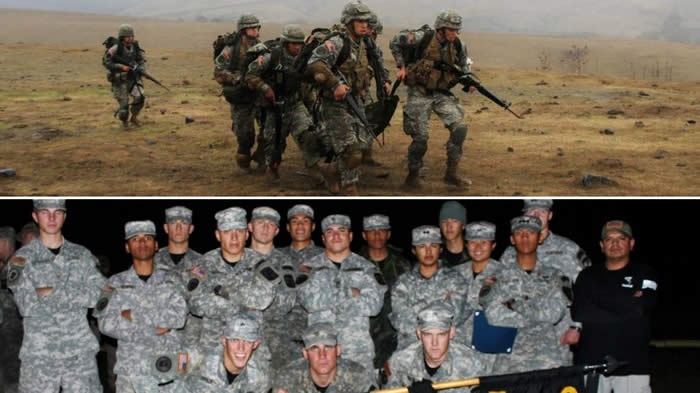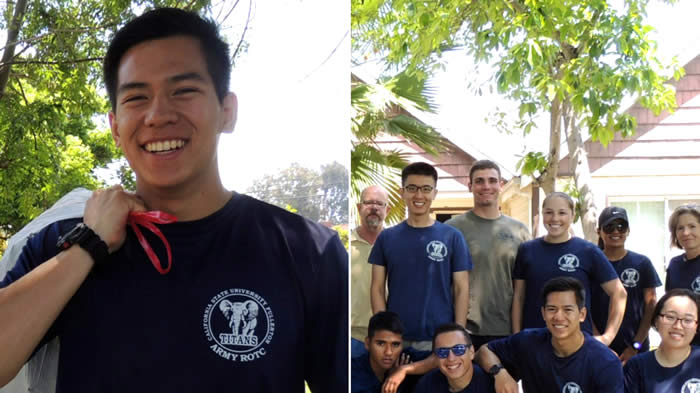Additional Opportunities
Summer Training Programs
In addition to regular Military Science classes during the school year, Cadets have the opportunity to participate in summer training programs
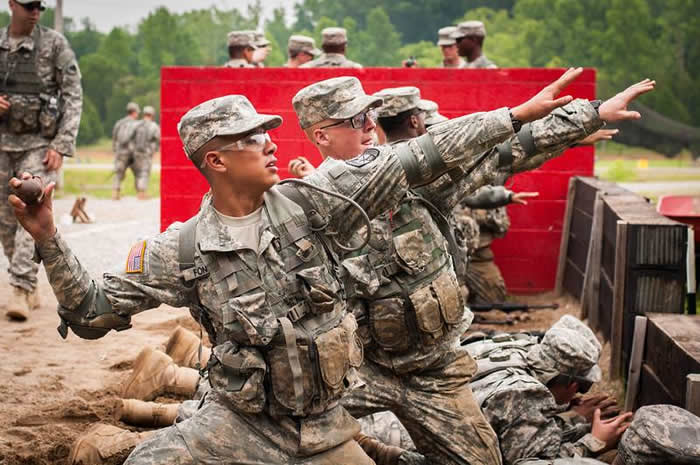
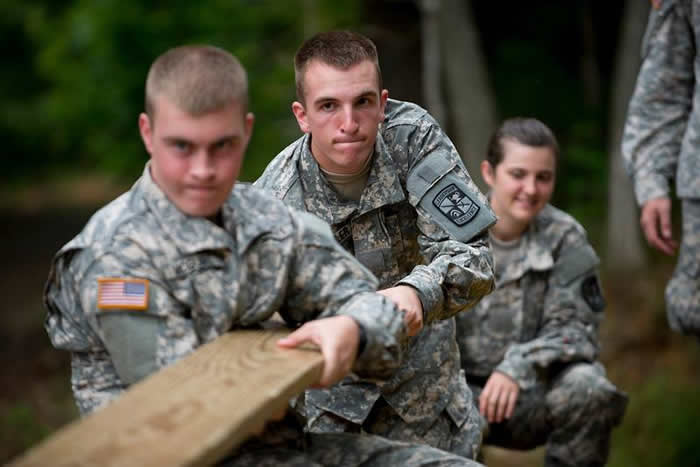
Basic Camp (BC) is the premier leadership program of its kind in the United States. An intense four-week introduction to Army life and leadership training of the Reserve Officers’ Training Corps, the aim of the course is to motivate and qualify Cadets for entry into the Senior ROTC program. BC, as it's known, is designed for college students, typically between their sophomore and junior years. Upon successful completion of the course, graduates can take part in ROTC at their college as a third-year student in the four-year program.
While attending Basic Camp at Fort Knox, KY., Cadets gain an experience that runs the gamut of Army life and the responsibilities of being an officer. The course instills confidence and decision-making abilities to become a leader, in the Army and in life.Cadets spend their first few days learning Army basics under the tutelage of drill sergeants. They also take their first Army Physical Fitness Test, which consists of sit-ups, push-ups and a two-mile run. Shortly after the course begins, Cadets are introduced to working in a small-group team-based dynamic in activities such as an obstacle course to accomplish set goals.
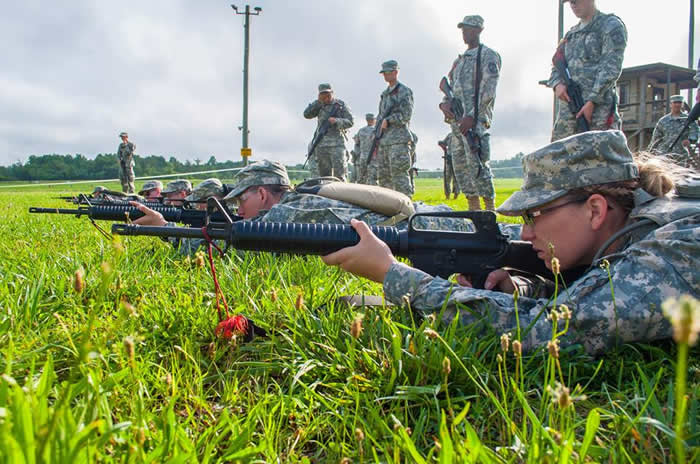
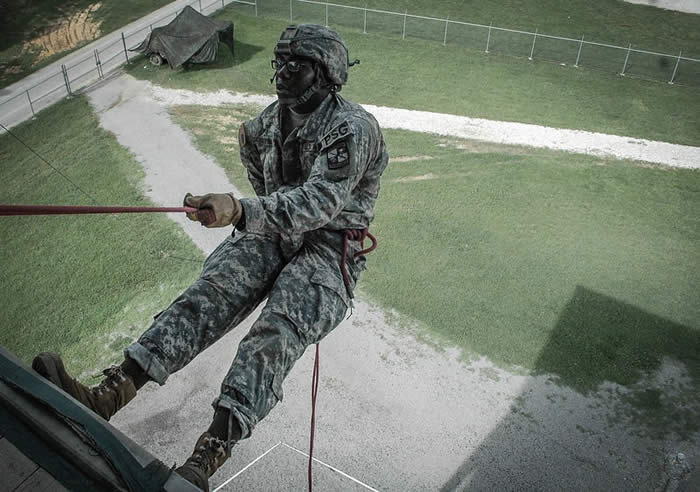
Advance Camp (AC) is now held annually at Fort Knox, Kentucky. The U.S. Army's largest training exercise, AC is the U.S. Army Cadet Command's capstone training event. The purpose of the course is to train U.S. Army ROTC Cadets to Army standards, to develop their leadership skills, and to evaluate their officer potential. Most Army Cadets attend CLC between their junior and senior undergraduate years after having contracted to join the Army. Successful completion of AC is a prerequisite to becoming an Army officer through ROTC.
The summer course starts with individual training and leads to collective training, building from simple to complex tasks. This building-block approach permits integration of previously-learned skills into follow-on training. This logical, common-sense training sequence is maintained for each training cycle. Every day at Advance Camp is a day of training.
Cadet Troop Leadership Training (CTLT)
The purpose of the CTLT is to expose cadets to the life of a Platoon Leader in an active Army unit. CTLT allows cadets to observe other leadership styles over the span of four weeks in order to better develop their own. During this course, Cadets diligently work alongside officers and non-commissioned officers to attain a stronghold on aspects of an effective Platoon Leader. Cadets must be slotted for the Leadership Development and Assessment Course to be eligible. Upon completion of CTLT, Cadets receive an Officer Evaluation Report (OER).
For Army ROTC Cadets, the world is their classroom. Every year, hundreds of Cadets travel the globe and spend up to three weeks immersed in foreign cultures and international military relations.
The Army recognizes the need for young leaders to develop more cultural awareness and foreign language proficiency skills. Now more than ever, cultural awareness training is a vital component to the Army ROTC curriculum. Overseas immersions help educate future leaders in ways the classroom cannot.
Cadets receive opportunities to compete for immersion in more than 30 countries. These opportunities expose them to everyday life in different cultures and intensifies language study, which helps produce commissioned officers who possess the right blend of language and cultural skills required to support global operations in the 21st Century.
Participants experience up to three different venues during immersion, including humanitarian service, host nation military-to-military contact and education on the social, cultural and historical aspects of the country.
Airborne School
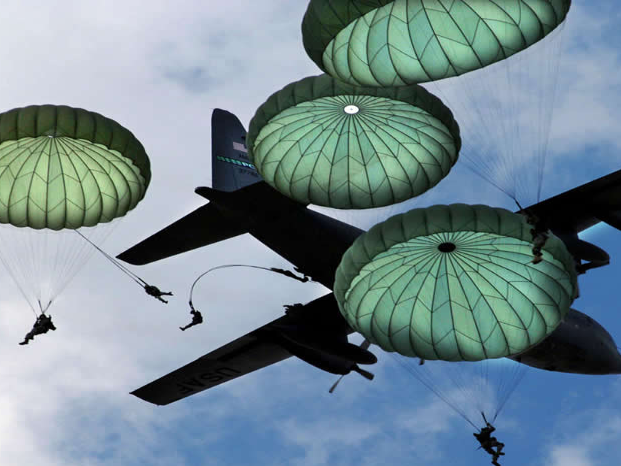
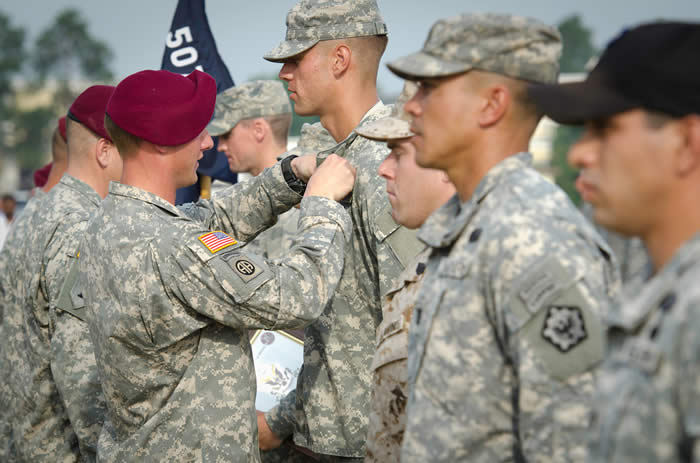
Do you think you have what it takes to step up to the door of an aircraft, look down at the drop zone, jump 800 feet and land safely — ready to fight? Take a look at this video and feel the rush!
It takes a special kind of person to volunteer for this assignment: someone with an unflinching spirit of adventure; someone who can put into practice in three minutes things that have taken three weeks to learn; and someone who is willing to live up to the Airborne history of action, dedication, and courage.
If you're that kind of person, the sky's the limit in Airborne.
This is a three-week school conducted at Fort Benning, Georgia. At Airborne school, Cadets train alongside Army officers, enlisted men and women, and members of the other armed services to jump from an Air Force aircraft (C130 and C141). Upon completion of the course, Cadets will earn the coveted jump wings and be parachutist qualified. This course is extremely safe and boosts the confidence of all who have the opportunity to attend.
Air Assault School
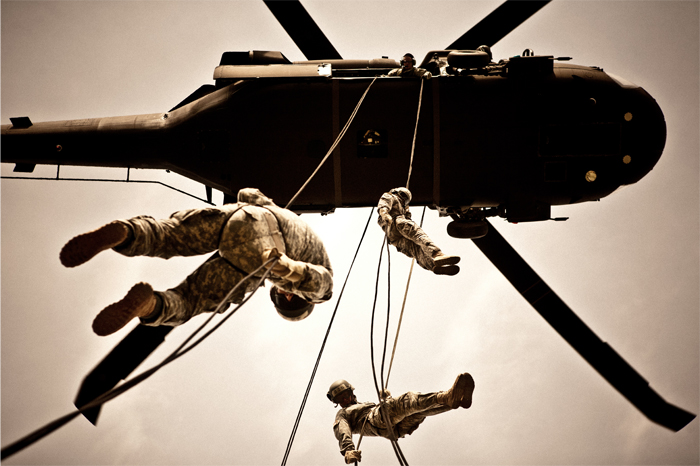
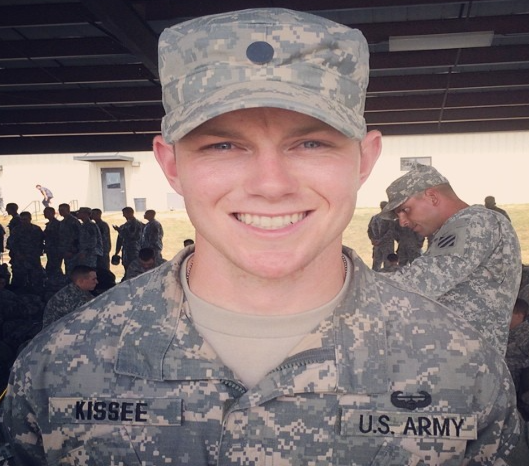
The Air Assault School, conducted at Fort Campbell, Kentucky, is two weeks of mental and physical challenges. This school is designed to teach air assault skills and procedures, improve basic leadership skills, and award the Air Assault Badge.
The AAS trains Cadets on Combat Assault Operations involving associated equipment and U.S. Army rotary-wing aircraft. Successful completion qualifies Cadets to wear the Air Assault Badge.
This course is very demanding both physically and mentally and involves obstacle courses and several long ruck marches. You will learn the basics of aircraft familiarization and recognition, slingload operations, and rappelling.
*Cadet qualification will depend on Military Science class OML (Order of Merit List). The list consists of GPA, Military Science grade, and Army Physical Fitness Test score.








